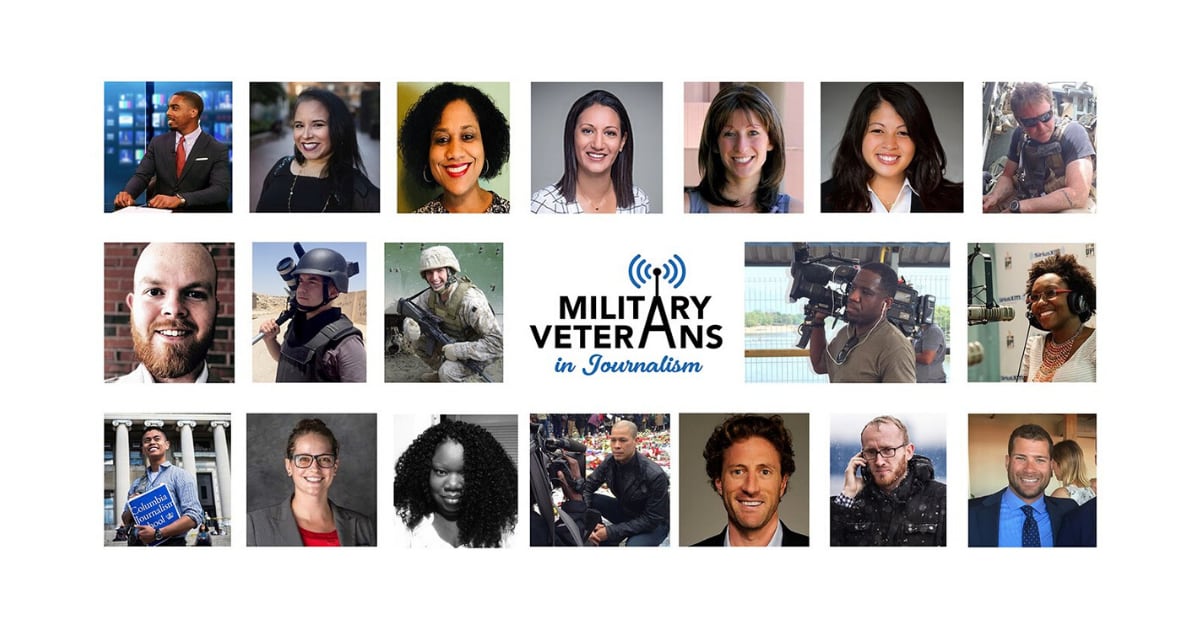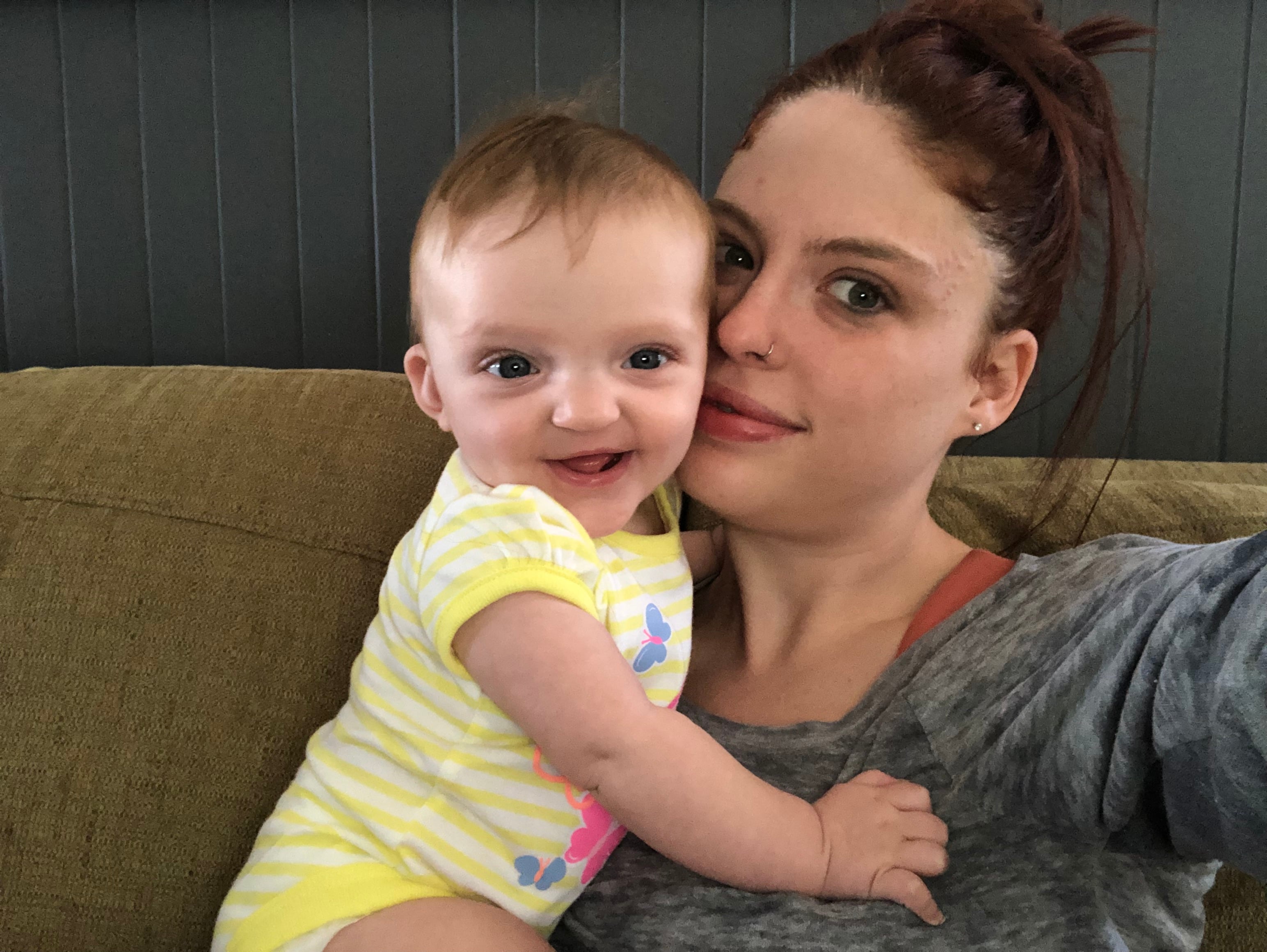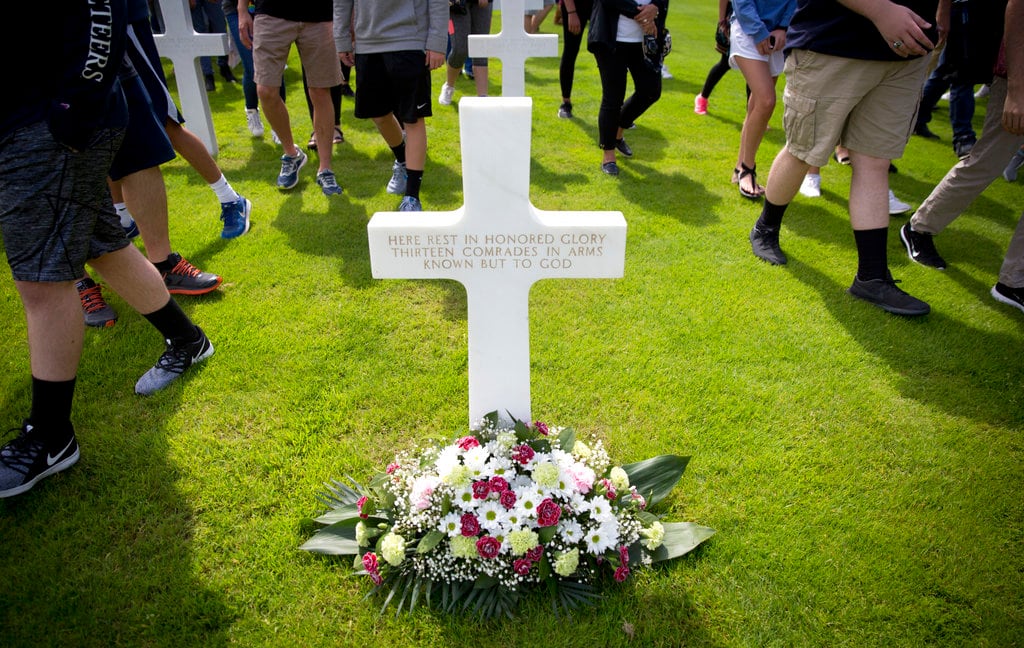Thursday evening, Military Veterans in Journalism begins its inaugural two-day convention showcasing veterans’ contributions to public discourse through journalism.
The virtual convention’s keynote speaker is CNN’s Jake Tapper, who also serves on the MVJ advisory board. In addition to the first night’s showcase of veteran talent in the media, including Davis Winkie of Army Times, MVJ will also recognize established journalists who have volunteered and mentored veterans making the transition from the military to the media.
According to MVJ Founder and President Russell Midori, Day two of the convention includes a career fair hosted by Disabled American Veterans. Additionally, Peter Finn, Carla Broyles, and Alex Horton of the Washington Post will run a panel discussion directed at helping veterans to “stand out” in the media job market.
“It turns out there’s a huge interest in [veterans in journalism], there’s a lot of support for this,” Midori told Military Times. “It’s one of those initiatives and ideas that crosses a lot of political lines.”
Established in 2019, MVJ is the brainchild of Midori, and fellow veteran turned journalist Zack Baddorf. In just two years, MVJ has grown from an idea the two veterans had into an organization comprised of more than 450 active members, along with more than 80 mentors helping guide veterans into the field of journalism.
According to Midori, the inception of MVJ was a gradual and natural progression, and has roots back to when Midori decided, while still in middle school, that he wanted to be a journalist.
In March, 1999, as munitions from NATO aircraft pummeled targets across Kosovo, Midori was Glued to his TV as explosions lit up the Yugoslavian night.
“[That] I think was the first time I saw news reporting on TV,” Midori said. “And I was like, ‘That’s where I need to be. That’s what I need to do.”
Years later, now a high school junior, Midori watched the attacks on 9/11 again on TV. The images from that day, combined with realizing that the United States was careening down the path toward war, Midori’s passion for storytelling collided with the drive to serve his country.
“It felt like, ‘well this is the story of my generation,” Midori said. “And I wanted to tell the story.”
Twenty years, an enlistment in Marine Corps, and an Emmy Award later speak to the clarity of purpose of Midori had as a youth. Midori’s passion for journalism is now his profession, with his service in the Marine Corps helping him achieve this goal.
After leaving the Marine Corps in 2014, Midori stayed in touch with those he served with, like many veterans. As fellow veterans transitioned out of the military and into the civilian world, they contacted him for career advice. Naturally, he obliged, and the concept for MVJ was unintentionally born.
“People would reach out to me to figure out, ‘how do I get a job like this?’” Midori said. “And sometimes I’d be able to help them [directly].” Other times they’d ask about an aspect of journalism that Midori wasn’t as familiar with, such as being a photographer.
“And it was like, ‘I don’t know exactly how to do that job, but I do know one photographer, a National Geographic one I saw in the field once,” Midori said. “I’ll connect you with her.”
By 2019, Midori and Baddorf were facilitating so many connections between veterans and opportunities in the news industry that they established MVJ to provide a formal space for veterans to find resources, guidance, and advice in pursuing a career in the media.
MVJ has grown from what Midori calls an “organic” approach of connecting veterans informally one at a time into a formalized network of mentors, career development events, as well as internship and fellowship opportunities.
According to Midori, this connection between military service is logical, and MVJ seeks to provide the opportunity for veterans in a field that Midori says is “very hard” to break into.
“One of the cool things about veterans,” Midori said. “Is that I think they’re service-oriented, and journalism is a public service.” More so, Midori said that veterans bring additional intangibles to a newsroom rooted in the diversity of life experiences that they’ve had. Among those is the ability, learned in the military, to look at the world objectively while detaching yourself from emotion.
“I think that former service members have an advantage over the general public in accomplishing that,” Midori said. Before adding that, MVJ has successfully placed members with internships and fellowships at outlets like National Public Radio, CNN, and the Washington Post.
To Midori, this showcase is essential to news organizations seeking to hire veterans, as it shows news networks the work veterans can produce. Additionally, Midori hopes that hearing from fellow veterans who have succeeded in the media will encourage more veterans to pursue a career in the field.
According to Midori, journalism provides a meaningful, impactful career and continues the sense of purpose veterans have ingrained in them.
“You get to contribute something to the world,” Midori said. “When you’re dead, the stories you’ve written live on. I want to give them the opportunity to have that voice.”
The convention starts at 5 p.m. Thursday and wraps up 5 p.m. Friday.
Editor’s note: Military Times Senior Managing Editor Howard Altman is on the MVJ advisory board.
James R. Webb is a rapid response reporter for Military Times. He served as a US Marine infantryman in Iraq. Additionally, he has worked as a Legislative Assistant in the US Senate and as an embedded photographer in Afghanistan.





